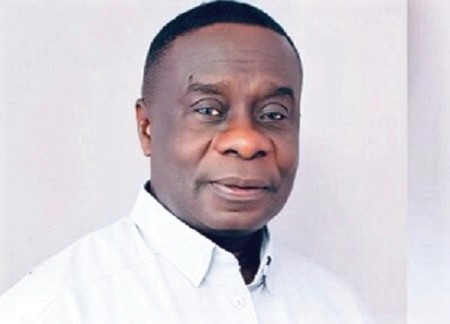
The Supreme Court has dismissed an application for Certiorari and Prohibition filed by the embattled Member of Parliament (MP) for Assin North, James Gyakye Quayson against a decision of the High Court in Accra on his criminal trial.
The panel chaired by Justice Jones Victor Dotse ruled that the ‘motion for Certiorari and Prohibition against the July 12, 2022 decision of the High Court (Criminal Division) has no merit and accordingly dismissed it.
The State had on February 12, this year, charged James Gyakye Quayson with five counts being; deceit of a public officer, forgery of a passport, knowingly making a false statutory declaration, perjury, and false declaration.
As the trial continued on July 2022, his lawyers led by Lawyer Tsatsu Tsikata questioned the competency of the Prosecution’s First Witness, Richard Takyi-Mensah, a teacher and his subsequent tendering of his witness statements.
But, his objection was overruled by the trial Judge Justice Mary Maame Ekue Yanzu on grounds that the witness was competent and duly admitted the witness statements and paragraphs.
Dissatisfied with the High Court’s ruling, Mr Quayson and his lawyers filed a motion at the Supreme Court seeking to quash the decision of the trial judge and an order of Prohibition against the judge.
Arguments
Lawyer Tsikata while moving the application, argued that there was a fundamental error albeit elementary error in the law relative to the High Court Judge’s decision.
This, he said, resulted in his client’s application “not only seeking to quash but an order of prohibition on her from proceeding in respect of her statement which was clearly in error.
The Director of Public Prosecution, Yvonne Attakora Obuobisa while opposing the motion argued that the applicant had failed to properly invoke the Supervisory Jurisdiction of the apex court.
According to her, the applicant has failed to show that there was a patent or fundamental error that goes to Jurisdiction and that the learned Judge acted within Jurisdiction in holding that the witness was a ‘competent witness.’
Relying on Sections 60(2), 111, and 112 of the (NRCD 323), the DPP said the evidence is personal knowledge and need not consist of the testimony of the witness himself.
She contended that, even if the said adoption of the statements by the trial judge was wrong, it does not constitute a fundamental error and thus described the application as frivolous and ought to be dismissed.
Source: Ghana/Starrfm.com.gh/Murtala Inusah



